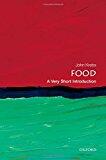
Food: A Very Short Introduction
작성자
John R. Krebs
아직 평점이 없습니다
History
Cookbooks
Health & Wellness
형식
페이퍼백
페이지
144
언어
영어
출판됨
Jan 1, 2013
출판사
Oxford University Press
판
1
ISBN-10
0199661081
ISBN-13
9780199661084
설명
In an engaging exploration of a fundamental aspect of human life, John Krebs delves into the world of food, uncovering its various dimensions and impacts on society, culture, and individual well-being. This concise work presents a rich tapestry of gastronomical knowledge, spanning from the agricultural origins of food to the intricate webs of nutrition and health.
Krebs weaves together historical, scientific, and social perspectives, illuminating how food influences identities and communities. He navigates through contemporary concerns such as sustainability and food security, prompting readers to reflect on their own dietary choices and the broader implications on the planet.
The book is not just informative; it also challenges readers to ponder the philosophical questions surrounding food. What does it mean to eat well? How do personal preferences intertwine with communal traditions? By encouraging such reflections, Krebs underscores the idea that food is much more than mere sustenance; it is a crucial element of human experience.
In this succinct narrative, readers are invited to appreciate the complexity of food, transforming it into an object of curiosity that transcends the kitchen. Through this lens, Krebs encourages a deeper understanding and appreciation for the role food plays in shaping lives and societies.
Krebs weaves together historical, scientific, and social perspectives, illuminating how food influences identities and communities. He navigates through contemporary concerns such as sustainability and food security, prompting readers to reflect on their own dietary choices and the broader implications on the planet.
The book is not just informative; it also challenges readers to ponder the philosophical questions surrounding food. What does it mean to eat well? How do personal preferences intertwine with communal traditions? By encouraging such reflections, Krebs underscores the idea that food is much more than mere sustenance; it is a crucial element of human experience.
In this succinct narrative, readers are invited to appreciate the complexity of food, transforming it into an object of curiosity that transcends the kitchen. Through this lens, Krebs encourages a deeper understanding and appreciation for the role food plays in shaping lives and societies.